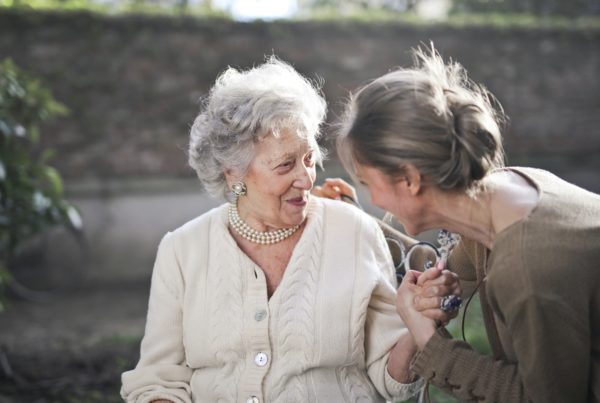A couple of bottles of wine in the evening could be too much. How much should your ageing parent drink?
As we age, our bodies change. Wrinkles deepen, joints stiffen and the grey hairs we had once considered an unwelcome visitors, wage a complete takeover. Less obviously, however, is the body’s growing inability to process the levels of alcohol we didn’t have to think twice about when we were younger.
This fact is especially important today. According to a new study, binge drinking has been rising dramatically amongst women over sixties and as the population ages, the general number of over sixties who drink will increase too.
While having the odd drink is perfectly safe and can be an enjoyable part of an older person’s lifestyle, it is important to remember that with age comes a heightened sensitivity to the effects of alcohol. Women, especially, are more susceptible to its effects, which can lead to short term problems like falls and memory loss, or longer term issues, such as liver and heart damage.
Additionally, if your parent is on any kind of medication, it is important to find out if it is affected by alcohol and by how much.
How can I diagnose excess drinking?
There are a few ways to find out whether your parent is drinking to excess. Most obviously, you can simply ask them about their drinking habits. This alone may unveil whether you have anything to be worried about.
You can also keep an eye out for the following yellow-flag behaviours:
- Drinking when stressed or nervous
- Finishing their drinks quickly
- Loss of appetite
- Developing any kind of financial issues because of drinking
- Being unusually irritable or unreasonable when not drinking
However, if you have reason to believe your parent is lying or stretching the truth in any way, you can try asking those who see them. Do they live with anyone who may notice their habits? Do they have any visitors who may be able to tell you if they have more than one glass of wine during their visits? Sometimes those around them can notice small habits even your parent overlooks.
If this isn’t an option, or doesn’t prove fruitful, you can go as far as to check bins and cupboards. How many bottles are in the kitchen cupboards at the start of the week, in comparison to the end? How many have moved to the recycling bin, instead? This will give you some idea of the amount of alcohol is passing through the house on a weekly basis, and should provide you with the information you need to keep your parent safe.
Why may my parent be excess drinking?
Many people who develop a drinking problem tend to do so later in life. Issues like bereavement, loneliness and boredom can be more prevalent after sixty. If you know of any pre-existing conditions your parent may have such as anxiety or depression, it’s best to be extra vigilant in regards to their drinking habits. Similarly, if your parent has recently lost a loved one, particularly a spouse or someone who lived with them or saw daily, try to be especially available to them, whether that may be more frequent phone calls or visits.
However, your parent’s drinking habits could be as simple as not being aware of them. As people grow older, they may continue to consume the same amount of adult they did when they were thirty or forty years old. At sixty, however, those levels are no longer advisable and they may simply have to make a lifestyle change.
How much alcohol should my parent be limited to?
So, what is the magic number? Adults are advised not to consume more than fourteen units a week, and especially not to try and cheat the system by ‘saving’ units for a Friday night. Those fourteen units should be spread across over a minimum of three days.
A unit can be a little more complicated to measure. For example, one unit can roughly look like the following:
- Half a pint of beer
- One bottle of cider
- One shot of vodka
- Half of a small glass of wine
For older people, this limit is basically halved. The Royal College of Psychiatrists has stated that over sixties should not consume any more than 1.5 units a day.
How can you help an older parent with a drinking problem?
Once you are aware that there is a problem, you can perhaps start to understand where its root is. If it is a simple lack of awareness of their problem, you can encourage them to reduce their weekly intake and begin to correct the problem together.
If loneliness or boredom is the root cause, you may make more of an effort to visit regularly, or arrange to do more entertaining activities together, like meals out, classes together or day trips to places neither of you have been before. You might encourage them to join a community, like a local choir or charity, so that they can continue using their talents and creativity.
However, the problem may run deeper than that. Issues of depression and bereavement may require advice from a healthcare professional. If in doubt, contact your GP and talk about it.
Whatever you do, it’s important to be proactive and respond to your parent with love and understanding.




